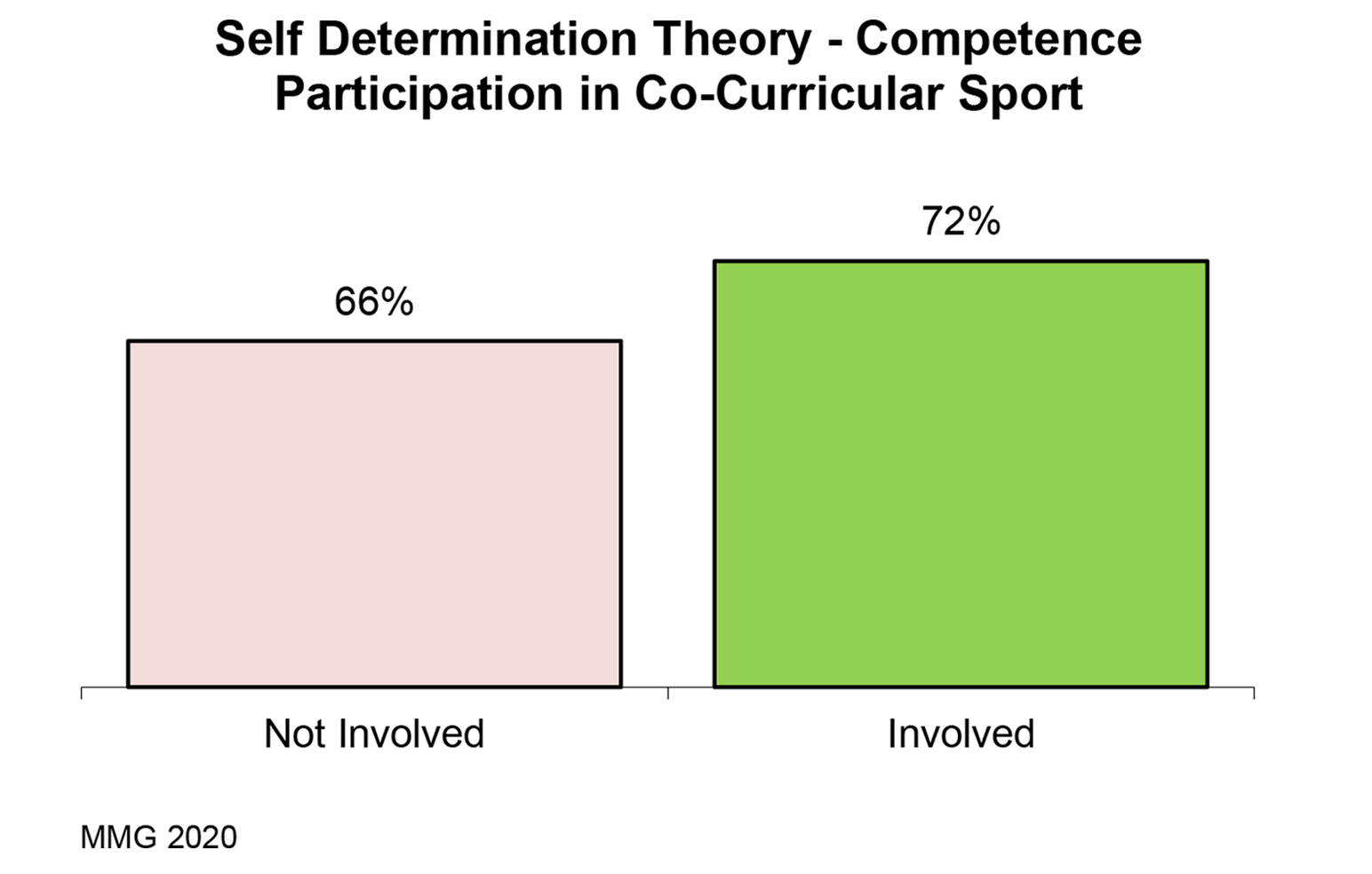Self Determination Theory (SDT) is recognised as an important measure of student and staff wellbeing and allows school leaders to target initiatives that enhance staff and students’ basic psychological needs and satisfaction with flow-on effects to school motivation and psychological wellbeing.
MMG has embedded the principles of 'Self Determination Theory' (SDT) as an important additional element of its research instruments relating to student and staff wellbeing.
A Unified Approach to Student & Staff Wellbeing Self Determination Theory
Why is it that some teachers have engaged students who express a desire to learn? Or some staff departments embody satisfied teachers whose passion for education continues to energise them despite years of service?
What influences students to remain on task and to be motivated and enjoy learning?
MMG has embedded the principles of 'Self Determination Theory' (SDT) as an important additional element of its research instruments relating to student and staff wellbeing.
The practical nature of SDT’s principles allow school leaders to target initiatives that enhance staff and students’ basic psychological needs and satisfaction with flow-on effects to school motivation and psychological wellbeing.
A central task and pressure for principals today surrounds the identification and implementation of initiatives that promote the welfare of staff and students whom they lead. Teachers who enjoy their work are more effective at what they do. Similarly, students who are motivated to learn assimilate knowledge more readily and produce greater outcomes. But despite widespread agreement that ‘soft’ cognitive skills and mental health within schools is of national interest, there is surprising ambiguity around what school leaders can, or should, be doing to support their staff and students.
MMG has worked with international leaders in wellbeing research and educational psychology (IPPE, ACU) to integrate current developments in theory into their practices and to undertake substantive investigations of their own. Self-Determination Theory (SDT) is one such example which we are very excited about. This unified theory of human development and wellbeing maintains that all people, staff and students included, are inherently active, driven to engage their environments to integrate knowledge and skills. However, for this natural disposition to be initiated, three basic psychological needs must be satisfied. These are Autonomy (need for volitional functioning), Relatedness (need for meaningful interpersonal connections) and Competence (need to experience the acquisition of skill and growing potential).
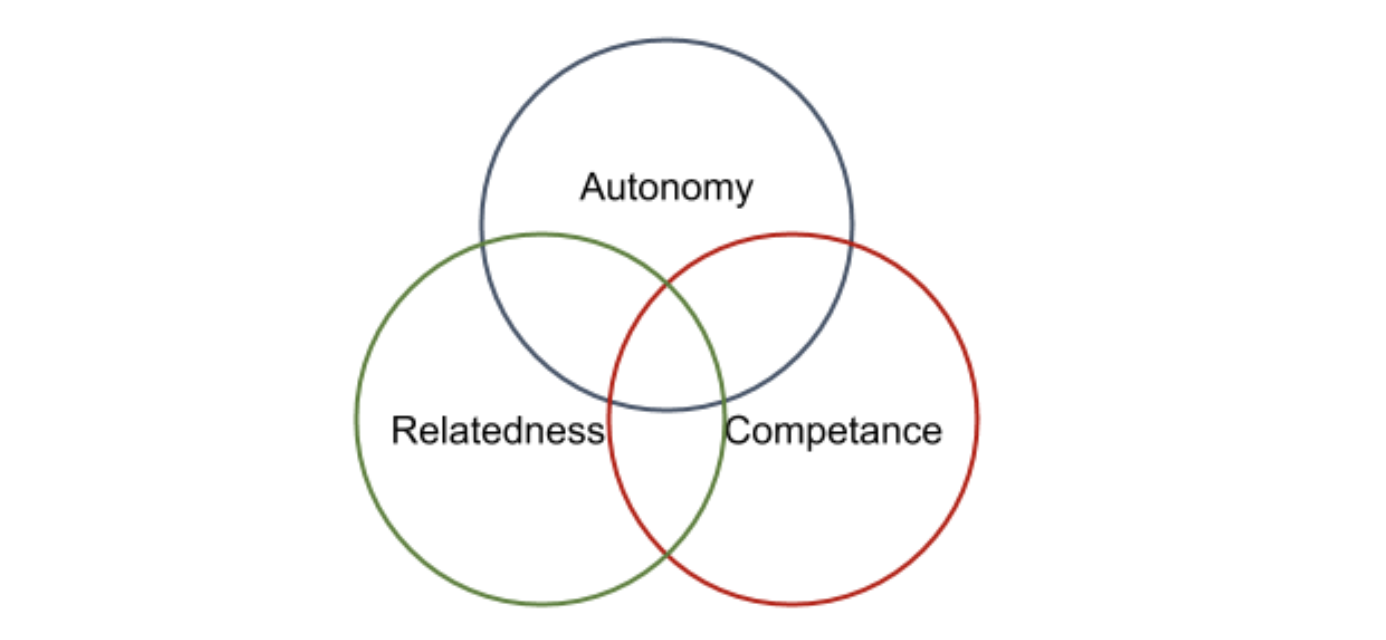
A growing body of literature has demonstrated the link between these basic psychological needs and positive outcomes in staff and students.
The following are examples of students' SDT scores by their year group and compared to the MMG database average (red line).
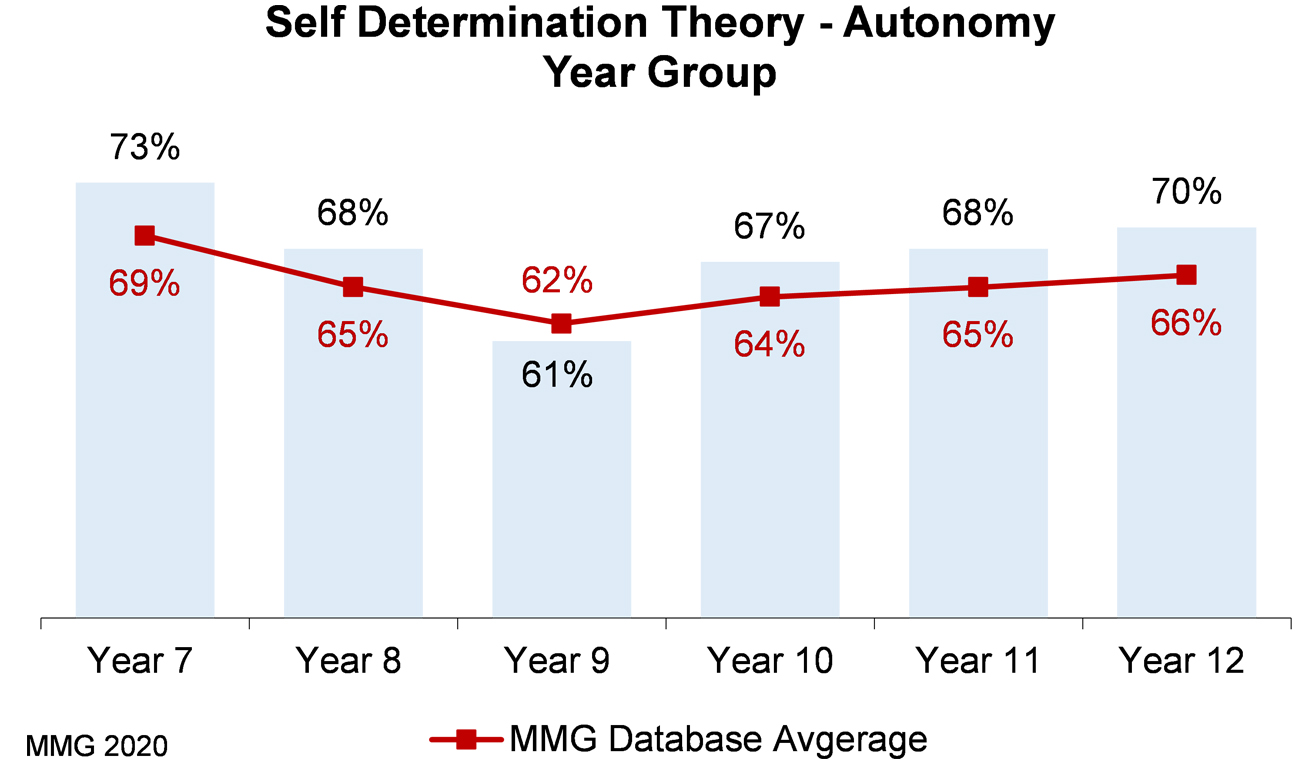
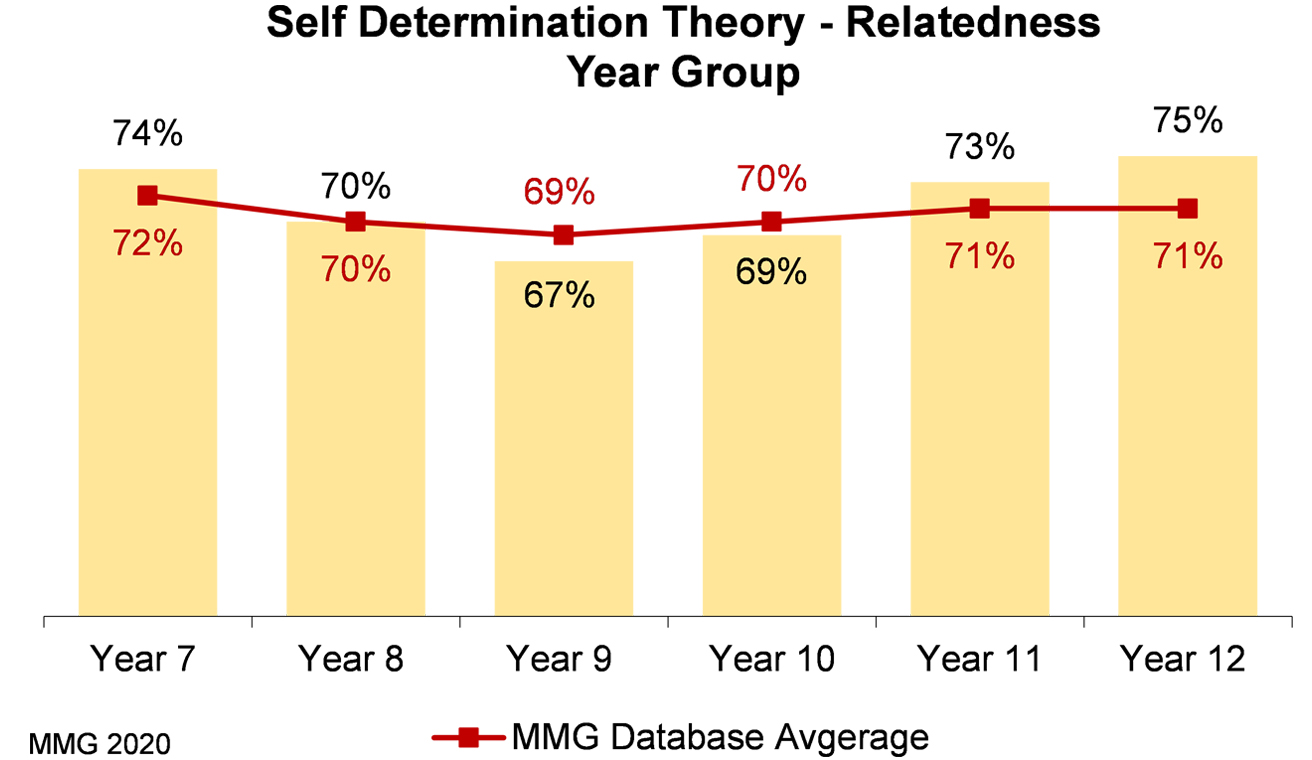
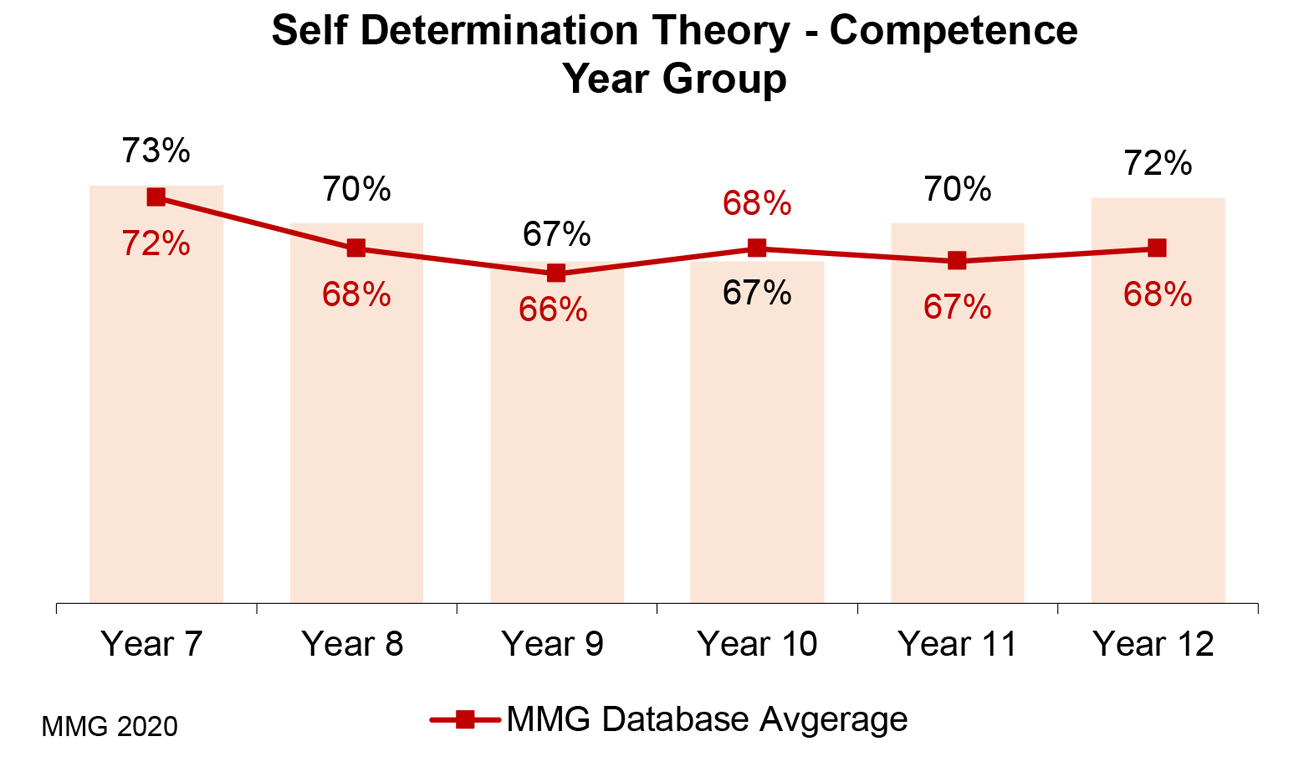
The chart below is an example of students' score for competence for those involved in co-curricular sport and those not involved.
